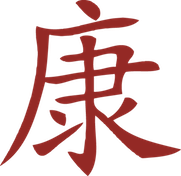Acupuncture and Oriental Medicine provide an incredibly safe, painless and effective way to improve overall health. The holistic treatment originated more than 4,000 years ago and it has proven effective in clinical trials to treat and prevent a number of medical conditions.
The general theory of acupuncture is based on the premise that there are patterns of energy flow (Qi) through the body that are essential for health. Disruptions of this flow are believed to be responsible for disease. Acupuncture helps correct imbalances of flow at identifiable points close to the skin. Many patients report relaxation and improved energy following acupuncture.
Acupuncture can improve circulation, boost your immunity and reduce side-effects of some Western medical treatments (i.e. nausea, vomiting, neuropathy from chemotherapy). It is an adjunct therapy to dentistry for temporomandibular disorder (TMD) and is also very effective for post-stroke sequelae (ideally within the first six months).
Insurance Accepted
Aetna, Cigna, Family Care & OHP from Oregon Health Authority (OHA), First Choice, First Health (Coventry): Multiplan, Great West, Lifewise, Pacific Source, Pacificare, Primera, Providence, Regence Blue Cross Blue Shield of Oregon, United Health Care.
Julie Goss provides acupuncture treatment to US Veterans in response to the Veterans Choice Act. As a Credentialed Community-Based Provider for the Veterans Choice Program, she is approved to treat patients in the VA Healthcare System.
A Natural Way to Heal
Acupuncture enhances immunity and recuperative power to promote natural healing. It also improves physical/emotional health and overall well being.
Acupuncture can benefit a wide variety of ailments:
Common Cold (Gan Mao) The common cold may be contracted in any of the four seasons; it is most prevalent in winter and spring.
Cough (Ke Sou) Ke characterizes coughing with sound but without phlegm. Sou characterizes coughing with phlegm but without sound. (The majority of coughing patterns have both sound and phlegm and is referred to as Ke Sou).
Asthma (Xiao Chuan) Causes: improper diet and eating habits, stress and overstrain and extended illnesses where the physical condition is frail. Rapid, labored breathing, oppression in the chest, coughing and expectoration of phlegm.
Gastrointestinal Disorders Stomach Pain, Vomiting, “GERD” (Stomach Reflux), Diarrhea, Dysentery, Chrohn's, Constipation, IBS, Ulcerative Colitis: Gallbladder Inflammation; Kidney Stone (early onset).
Headache (Tou Tong) Generally speaking, headaches are caused by stagnation of Qi and blood.
Types of Headache:
- Head pain extending through neck and back (worse with wind/cold)
- Apex-style (top of head), dry retching/vomiting (severe cases - cold extremities)
- Distending/splitting headache, flushed complexion, bloodshot eyes, thirst, constipation, dark urine
- Headache as if head is tightly bound, heaviness of limbs, loss of appetite, chest oppression, scanty urine and occasional loose stools
- Headache with dizziness and vertigo, irritability, restless sleep, rib pain in some cases, bitter taste in mouth
- Headache with empty head sensation, dizziness and vertigo, weak, aching lower back
- Constant dull headache aggravated by overwork; lack of strength, fatigue, loss of appetite.
Dizziness and Vertigo (Xuan Yun)
Symptoms: Mild cases- relief is found in closing the eyes. Severe cases- sensation of rocking and spinning without relief to the point that standing upright is difficult; nausea, vomiting, perspiration and even fainting.
Lower Back Pain (Yao Tong) Low back pain, with pain to one or both sides or directly on the lumbar spine. Traumatic falls, contusions or sprains injuring the acupuncture channels of the lumbar region will result in stagnation of Qi and stagnation of blood, causing pain.
Diabetes (Xiao Ke) Xiao means wasting; Ke means Thirst These patterns have excessive thirst, hunger and urination as their characteristic features. Western medicine refers to diabetes mellitus and diabetes insipidus. (blood sugar control, circulatory issues; Erectile Dysfunction, Neuropathies: (numbness & tingling or pain in hands, feet or limbs).
Frequent Scanty/Difficult Urination (Lin Zheng) Dribbling urination, sharp pain and lower abdominal spasms or pain radiating to the lower back during urination. Western medical conditions of acute and chronic urinary infection, bladder or kidney stones, acute and chronic prostatitis.
Depression (Yu Zheng) Yu Zheng refers to a class of patterns stemming from emotional disturbance that are characterized by stagnation and obstruction of the flow of Qi (vital energy or force).
Arthritis (Bi Zheng) Bi means obstruction or blockage. In Chinese medicine, it is believed that external elements enter the body: wind, cold, dampness or heat.
Stress-Related Disorders (Palpitations, Insomnia, etc.) Common Symptoms: nodes in affected joints, swelling and difficulty moving the joints. This may arise from depletion of Qi and blood during an illness.
Additional Conditions Treated:
Anxiety
Eyes (sore, red and swollen)
Cancer-caused neuropathy
Female Infertility
Loss of Voice
Low Libido
Male Impotence
Morning Sickness
Menopause
PMS
Post-Stroke: Balance, Drooling, Facial Palsy, Hemiplegia, Speech
